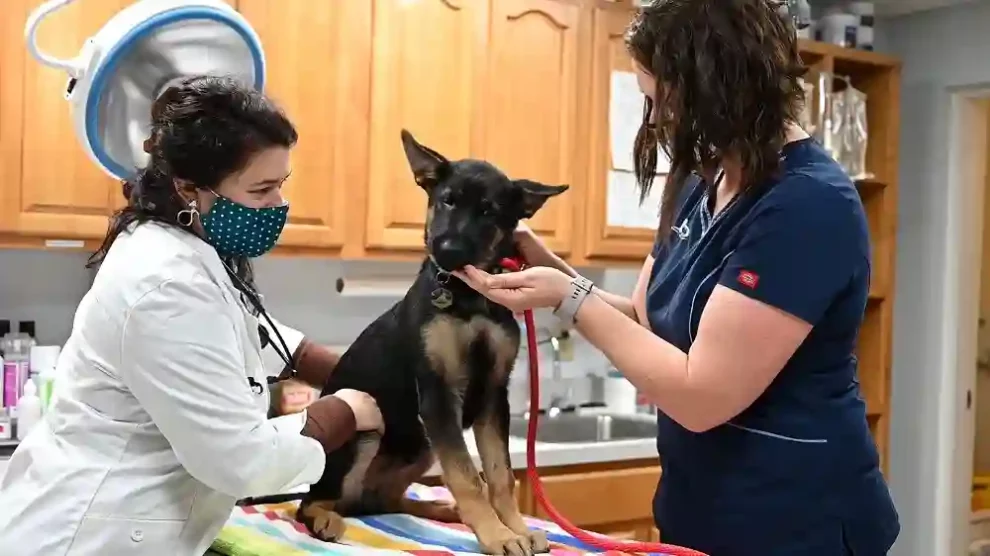Dogs are more than just pets; they are cherished members of our families. As responsible pet owners, we prioritize their well-being and happiness. However, life can be unpredictable, and emergencies can happen when we least expect them. When a health crisis or accident occurs with your beloved canine companion, quick access to veterinary care is crucial. This is where dog insurance plays a vital role. In this comprehensive guide, we will explore the significance of dog insurance in providing emergency care for your furry friend and how it can make a world of difference in a critical situation.
The Importance of Quick and Quality Care
Emergencies can strike at any moment, and when they involve your dog’s health, time is of the essence. Whether it’s an accident, sudden illness, or an unexpected health crisis, rapid access to veterinary care can make a significant difference in the outcome.
Prompt care can mean the difference between life and death in some situations. For example, if your dog ingests a toxic substance, suffers a severe injury, or experiences symptoms of a critical illness, immediate medical attention is crucial for a positive prognosis.
Quality care is equally vital. Veterinary emergencies often require specialized knowledge and equipment. Specialists in emergency and critical care can provide the expertise and resources needed to stabilize your dog’s condition and initiate life-saving treatments.
The Role of Dog Insurance in Emergencies
Dog insurance is designed to provide financial assistance when your dog requires medical attention, including emergency care. Here’s how it plays a vital role in ensuring your furry friend receives the best care during critical moments:
1. Financial Protection:
Emergencies can come with hefty veterinary bills. Dog insurance offers financial protection by covering a significant portion of the costs associated with emergency care. This financial support ensures that you can provide your dog with the necessary medical attention without worrying about the expense.
2. Quick Decision-Making:
In emergency situations, quick decision-making can be the key to saving your dog’s life. Knowing that you have insurance coverage in place allows you to make decisions based on your dog’s health and well-being rather than financial constraints.
3. Access to Specialists:
Some emergencies require specialized care and expertise. Dog insurance often covers visits to specialists in emergency and critical care, ensuring that your dog receives the level of care needed to address their specific condition.
4. Life-Saving Treatments:
Emergencies may necessitate life-saving treatments, such as surgeries or intensive care. Dog insurance can cover these treatments, ensuring that your dog has the best chance of recovery.
What Dog Insurance Typically Covers in Emergencies
Dog insurance policies vary, but many comprehensive plans cover a wide range of emergency situations and associated costs. Here are some common components of emergency care that dog insurance can cover:
1. Accidents:
Accidents can include injuries from car accidents, falls, or other unforeseen events. Dog insurance often covers the cost of diagnostics, surgeries, medications, and hospitalization resulting from accidents.
2. Illnesses:
Sudden illnesses, such as gastrointestinal issues, respiratory problems, or urinary tract infections, can require emergency care. Dog insurance can help offset the costs of diagnostic tests, treatments, and hospitalization for these conditions.
3. Ingestion of Toxins:
Dogs are curious creatures and may ingest toxic substances accidentally. Emergency care is essential in such cases, and dog insurance can cover the costs of treatments to address poisoning.
4. Bloat (Gastric Dilatation-Volvulus):
Bloat is a life-threatening emergency in dogs, particularly in deep-chested breeds. Treatment often involves surgery to correct the condition, and dog insurance can help cover these surgical costs.
5. Trauma:
Traumatic injuries, such as fractures, lacerations, or puncture wounds, may require emergency surgery or extensive medical treatment. Dog insurance can assist in covering these expenses.
6. Hospitalization:
Emergency hospitalization can be necessary for monitoring and treatment. Dog insurance can cover the costs associated with hospital stays and related medical procedures.
How to Prepare for Emergencies with Dog Insurance
While dog insurance is a valuable safety net during emergencies, it’s essential to be prepared and proactive. Here’s how you can ensure you’re ready to handle emergencies with your dog insurance policy:
1. Choose the Right Policy:
Select a dog insurance policy that provides comprehensive coverage, including emergency care. Carefully read the policy details, including deductibles, premiums, and reimbursement rates.
2. Familiarize Yourself with Policy Details:
Understand the specifics of your dog insurance policy, including any waiting periods, exclusions, and coverage limits related to emergencies.
3. Keep Records:
Maintain complete records of your dog’s medical history, including vaccinations, previous illnesses, and treatments. Having this information readily available can be valuable in emergency situations.
4. Know How to File a Claim:
Understand the process for filing a claim with your dog insurance provider. Familiarize yourself with the required documentation and procedures to ensure a smooth claims process.
5. Have an Emergency Plan:
In addition to having dog insurance, create an emergency plan for your pet. Know the location of the nearest 24-hour veterinary clinic, and have the contact information readily available.
6. Contact Your Veterinarian:
If you’re facing an emergency situation, contact your veterinarian or an emergency veterinary clinic immediately. They can provide guidance on how to proceed and ensure your dog receives timely care.
In Conclusion
Emergencies can be a challenging and emotional time for both you and your dog. Having dog insurance in place can significantly alleviate the stress and financial burden associated with emergency care. It ensures that you can make decisions based on your dog’s health and well-being rather than financial constraints.
Remember that the best dog insurance policy for your furry friend is one that provides comprehensive coverage, fits your budget, and aligns with your dog’s healthcare needs. With the right coverage in place, you can rest assured that your loyal companion will receive the prompt and quality care they deserve during critical moments.













Add Comment